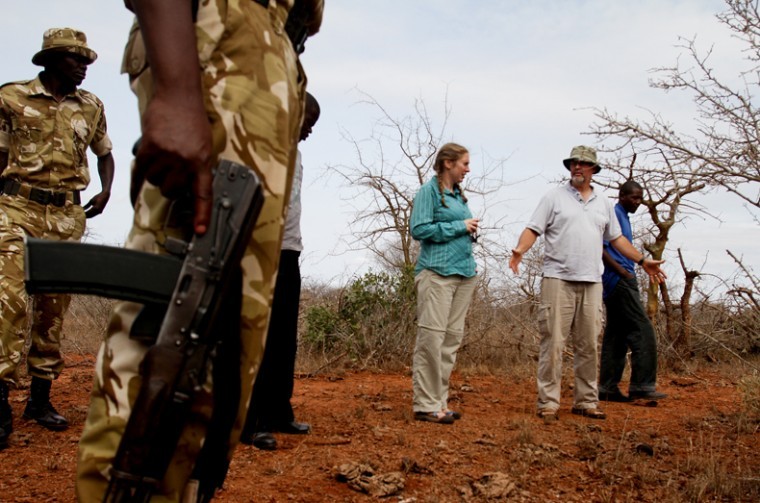R is for Researcher: Professor leads study abroad group in research
February 25, 2011
Biology professor Mike Stokes leads a study abroad group every summer in Africa, where students spend time participating in research that aims to solve the conflict of migrating animals destroying farm- lands.
Researchers from the biology department work in Ghana, Kenya, Tanzania and South Africa, Stokes said.
“Kenya is a very poor country,” he said. “It has more people than it can support, like many countries in Africa, but human population growth continues unabated.”
Stokes said there are about 37 million people in Kenya, where the average person in a rural area is unemployed and living off much less than a dollar a day.
“You can describe their existence as subsistence living,” he said. “A family will grow a crop or two, and if the drought isn’t too bad or animals don’t eat it, they’ll use it as food or trade it for other goods.”
In Kenya, education is free through eighth grade, and then students must pay tuition, which results in almost everyone dropping out of school after middle school, Stokes said.
“It’s the fortunate few who can have a high school education,” he said.
Stokes said families and villages often pull together money to send a child to high school in hopes that their investment will be returned to the village in some way.
“That person will be able to find a job and send money back to the village,” he said.
While the study abroad groups are in Africa, they are there to participate in research, he said.
“We hope that our research will contribute to a better life in those communities,” Stokes said.
Now, Stokes is working on research that is funded by the U.S. government and the Bill & Melinda Gates Foundation. The research is focusing on ways to keep migrating wildlife off farms so they don’t destroy the farms as they move from place to place.
“We’re interested in it because we’re interested in wildlife research and conservation, but at the same time it’s something that should help the communities,” Stokes said.
There are other projects that are complementary to the research project, including paying for a child to go to high school or helping to build a house for orphans.
The Students in Free Enterprise group helps sell baskets that Kenyan women make, Stokes said.
The profits from the baskets go back to Kenya, where the local women’s groups distribute the money as they see fit, paying for food, seed, tuition for a child, or materials to make more baskets.
“Every student I take over comes back a different person,” Stokes said.
Andrea Falcetto, a graduate student in biology and sociology from Emporia, Kan., was working in Morocco in the Peace Corps before she went to Kenya and met Stokes for the first time this pas summer.
Falcetto helped distribute the money from the basket project, bought more baskets to sell and did some unofficial Peace Corps recruiting.
Falcetto will begin a new research project on forest conservation in Kenya this summer with the help of Stokes, she said.
Maggie Mahan, who works in WKU’s biology department, went to South Africa and Kenya with Stokes as an undergraduate in 2005.
During spring break of the next year, Mahan went back to Kenya with Stokes to work out a contract trying to find a place to set up a campsite on a share-held ranch the size of Mammoth Cave National Park, she said.
Mahan also helped with the basket project, using the profits from the baskets to pay school fees for local children and to buy maize for the villagers after a drought.
She said the program is constantly growing.
“All of our work helps add so much extra income to a relatively poor area,” Mahan said.
Mahan said she highly respects Stokes for all the work he does.
“Mike is a great friend and mentor,” she said.













